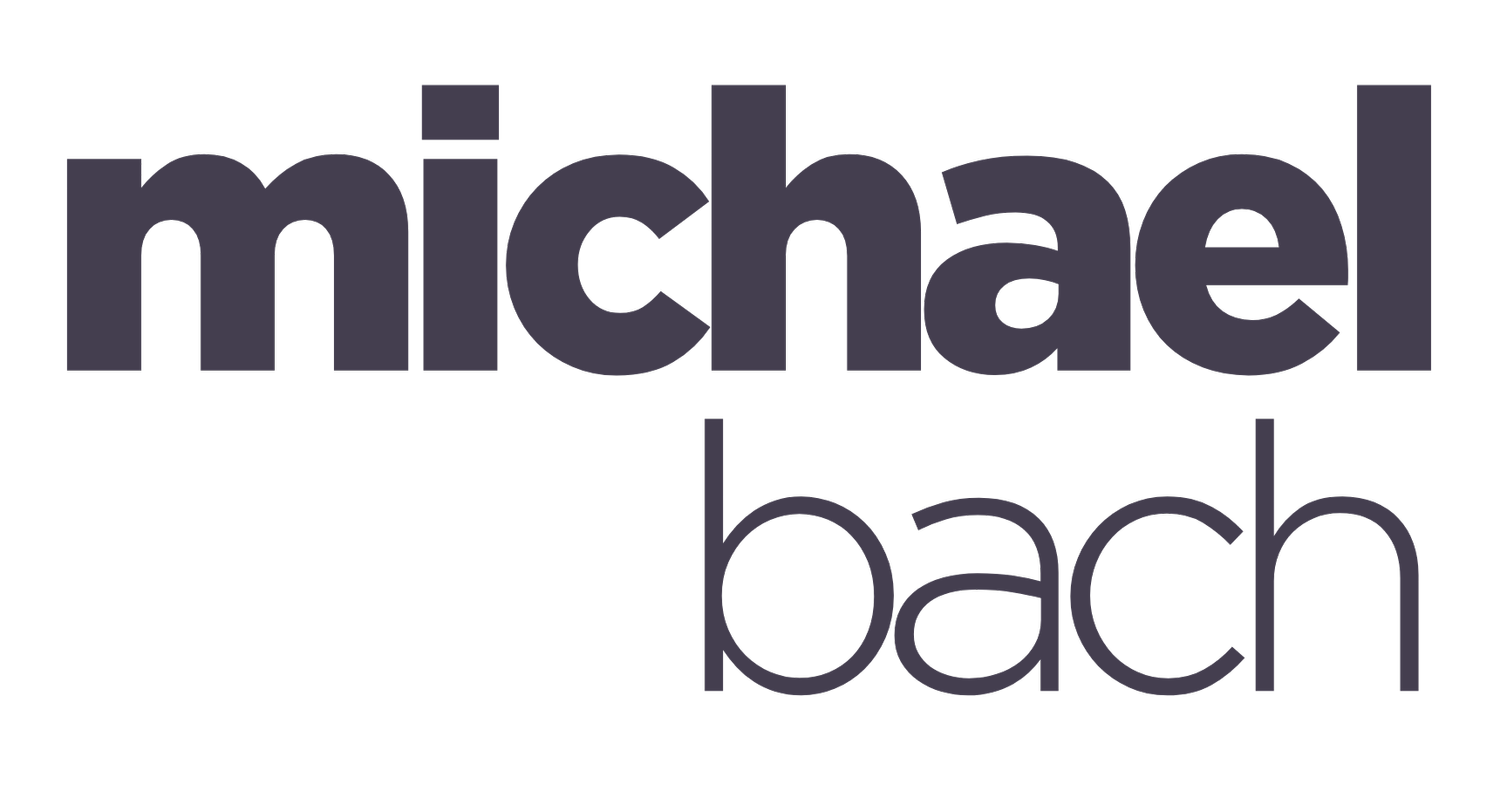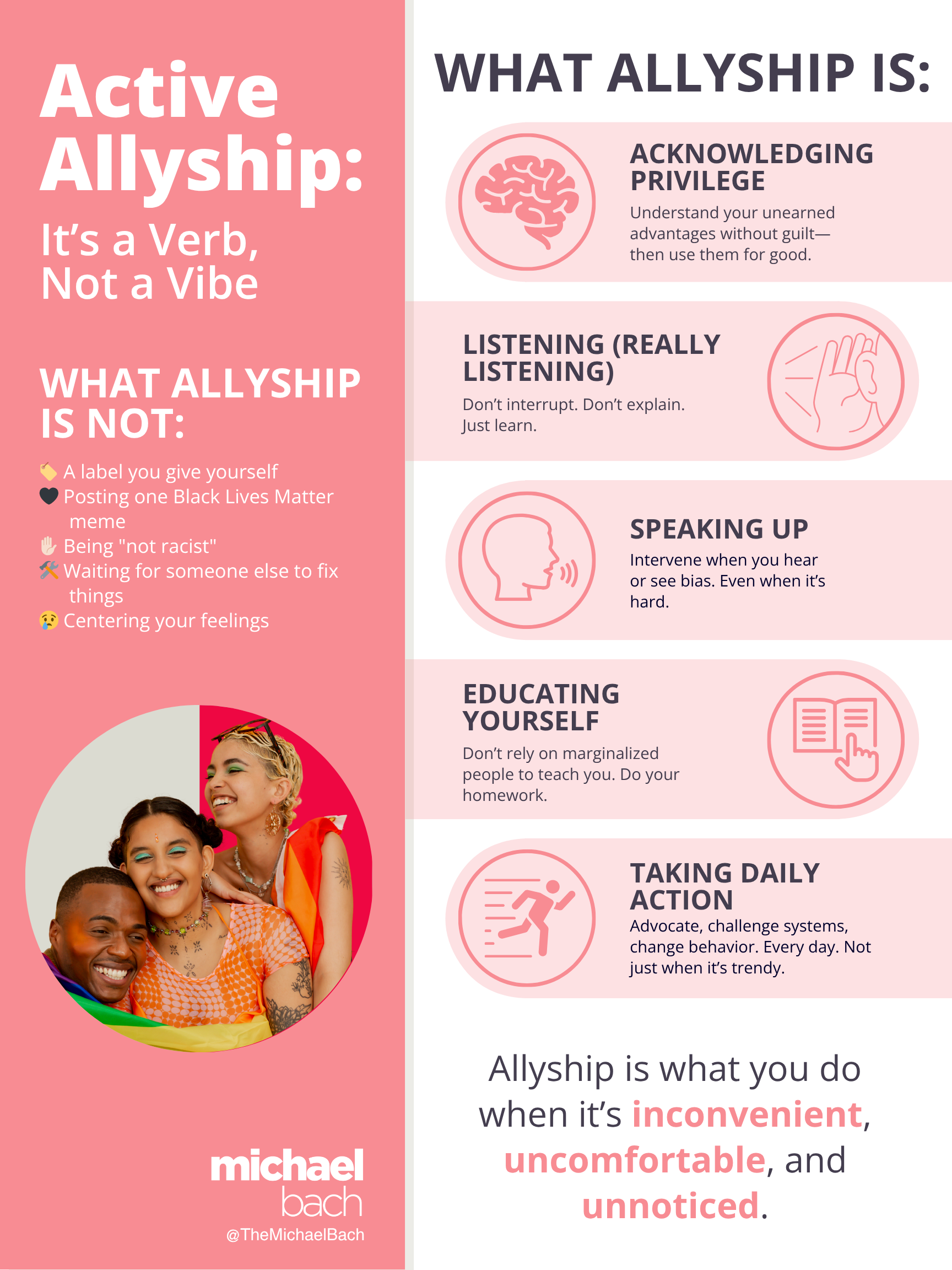Allyship: Less Rainbow Pin, More Actual Work
Let’s start with the uncomfortable truth: most people who call themselves allies… aren’t.
I know, I know—that’s harsh. But in my defense, I’m writing this “pre-caffeine.” Still, hear me out.
We’ve diluted the word ally into oblivion. It’s become a trendy label, like slapping “gluten-free” on something that never had wheat to begin with. Everyone wants the badge, but few want the responsibility. Because actual allyship—the kind that changes systems, not just profile pictures—is work. And surprise: it’s not about you.
Being an ally isn’t something you are. It’s something you do. It’s active. It’s uncomfortable. It’s inconvenient. And if it’s not costing you anything? You’re probably not doing it right.
Step One: Understand Your Privilege (Without the Guilt Spiral)
Let’s get something straight: privilege doesn’t mean you haven’t struggled. It just means your identity hasn’t made things harder for you in specific ways.
I’m a gay man. I also happen to be white and male. I don’t have to worry about being racially profiled. I’ve never been underestimated because of my gender. Those are privileges. I didn’t ask for them, but they exist. To paraphrase Voltaire, with great privilege comes great… you guessed it: responsibility. And no, that saying didn’t come from Spider-Man!
Allies use their privilege as a lever—to open doors, raise voices, and dismantle barriers. It’s not about guilt. It’s about awareness. Guilt makes you freeze. Awareness lets you move.
Step Two: Stop Centering Yourself
Newsflash: allyship is not your TED Talk moment. It’s not your time to shine. It’s not a performative monologue on LinkedIn about how “deeply moved” you were after watching Pose. (Although… it is a great show.)
True allies know when to shut up and listen. They know when to amplify, not echo. They pass the mic instead of taking it. And they don’t expect a cookie every time they do the bare minimum.
If your allyship requires applause to be sustained, what you’re doing is marketing. Not advocacy.
Step Three: Speak Up—Especially When It’s Risky
This is where many would-be allies conveniently disappear. They’re all in for the lunch-and-learn. But when it comes to calling out a racist comment in a meeting? Crickets.
Being an ally means intervening even when it’s awkward. Especially when it’s awkward. It means using your voice when it might cost you—social capital, comfort, even career points. Because if you’re only supportive when it’s safe, you’re not supporting. You’re spectating.
True allyship happens when no one’s watching.
Step Four: Educate Yourself (Google Is Free… or is it?)
Marginalized folks don’t owe you an education. They don’t exist to answer your questions, soothe your feelings, or gently guide you through your “journey of understanding.”
Do the work. Read. Watch. Listen. And when you inevitably mess up—and you will—apologize like a grown-up. Not defensively. Not with “I didn’t mean to.” Just: “I’m sorry. I’ll do better.”
Progress > perfection. But effort? Non-negotiable.
Step Five: Take Action, Not Just Stances
You posted a black square in 2020. Cool. What have you done since?
Allyship isn’t a trending topic. It’s a daily practice. It’s noticing who gets interrupted in meetings. It’s advocating for pay equity. It’s rethinking hiring practices. It’s pushing for accessibility. It’s making sure inclusion isn’t just a line in your values statement—but a reality in your workplace.
You don’t have to be perfect. But you do have to show up. Consistently. Not just when it’s Pride Month or Indigenous History Month or International Day of Whatever. Every damn day.
Final Thought: Allyship Isn’t an Identity. It’s a Choice.
Every day, you decide whether you’ll just benefit from your privilege or use it to drive change. Allyship isn’t a title you award yourself—it’s something that’s earned, based on what you do when it matters most.
So here’s the challenge: stop calling yourself an ally. Start acting like one. Because the world doesn’t need more statements of support. It needs support, period.
Learn more about Michael’s speaking topic, Strength in Numbers: How to be an Active Ally.

